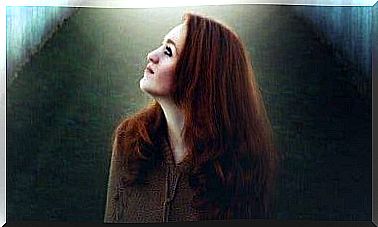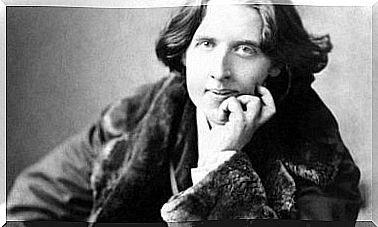The Biography Of Viktor Frankl, The Father Of Logotherapy
Many do not know whether to call Viktor Frankl a hero, a martyr or a great thinker. The truth is that he was a bit of all three. He was a hero because he boldly faced some of the worst hardships a human being can live through. He was a martyr, for although he could escape this adversity, he chose to stay and suffer with his people during a cruel war. In the end, he was a great thinker because he left a new field of psychotherapy as his legacy: logo therapy.
Viktor Frankl is one of those people who managed to grow as a human being among some of the worst human misery, and still get out on the other side in one piece. He was an Austrian physician and psychiatrist, born into a middle-class family in 1905. He had two siblings, an older and a younger.
It is important to note that he grew up in a quiet home and enjoyed a peaceful childhood. He describes it in his own words with a story from when he was 5. He woke up in bed, without opening his eyes, and felt an enormous sense of happiness and peace. By opening his eyes he saw his father sleeping by his side.
During his teenage years, his family had to survive the stresses of World War I. The goods were scarce and he learned what scarcity and hunger were. It was during this time that Frankl became an avid reader and established correspondence with Sigmund Freud. He developed a passion for the riddles of the human mind.
Viktor Frankl and the meaning of life
When Viktor Frankl was still just a bachelor student, he gave his first conference. It was entitled “The Meaning of Life” and was taught at the popular University of Vienna. From a young age, he was preoccupied with the questions he would try to answer throughout his life : Why do we exist? What is the meaning of life?
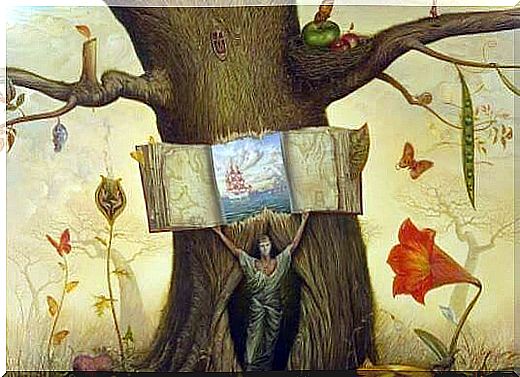
Although initially interested in psychoanalysis, he distanced himself from Freud in 1925. He felt that its approaches were too deterministic. He focused on Alfred Adler’s “individual psychology”. Afterwards, he became interested in the theses of Rudolf Allers and Oswald Schwarz, founders of psychosomatic medicine.
Frankl had always been passionate about philosophy, especially existentialism. Still, he wanted to study medicine, specializing in neurology and psychiatry. In 1933-1937 he was a psychiatrist at the Psychological Clinic at the University of Vienna. In 1939 he was appointed head of the Department of Neurology at Rothschild Hospital in Vienna. He excelled in his profession until his fate took a radical turn.
Nazism and World War II
Viktor Frankl was Jewish and lived in Austria. Because of this, he felt the effects of the spread of Nazism from an early age. His situation became more and more uncertain. When World War II began, his brother, Walter, was captured by the Nazis and sent to a concentration camp.
Later, his sister, Stella, fled to Mexico. Viktor applied for a visa to the United States, and it was granted. However, he was concerned about the possible fate of his parents and patients.
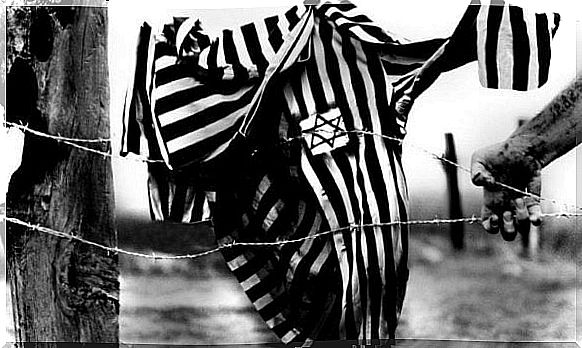
That was when he made an extreme decision. He explained it this way: “There was a piece of marble on the radio. . . a Hebrew letter was engraved on the stone. My father told me that the letter only appeared in one of the commandments, in the fourth commandment which says “.” After this , he decided to stay in Austria and return his American visa.
In 1941, Viktor Frankl married Tilly Grosser. A few months later, the Nazis had her abort the child they were expecting. In 1942, Viktor, his wife, and his parents were forced into the Theresienstadt camp. The following year, his father died of starvation, severely reduced by respiratory diseases. In 1944, Viktor moved to Auschwitz with his wife. They divorced, and he did not hear from her until after the war.
This period of difficult captivity and forced labor triggered great reflections for Frankl. Finally, in 1945, Frankl was liberated by the United States Army. His wife, who had been moved to Bergen-Belsen, was also given her freedom. Tragically, she was trampled to death in the panic that was triggered when all the newly freed prisoners ran to freedom. Viktor’s mother had died a few years earlier in a gas chamber.
Viktor Frankl in search of meaning
As he left the concentration camp, Frankl searched for his family and was greeted by the devastating truth that he was alone. He would never see his loved ones again. The first thing he tried to reconstruct was a book by him that was in a manuscript, and it was taken from him when he entered the camps. He succeeded in recreating it and published it, his first book, entitled Psychoanalysis and Existentialism.
Soon, before Christmas 1945, Frankle felt an undeniable urge. He needed to talk about what he had been through and what he had learned in the concentration camps. Then he hired three secretaries and made them take notes while he told everything that had happened to him. For nine days, he only stopped talking when he could no longer hold back his tears.
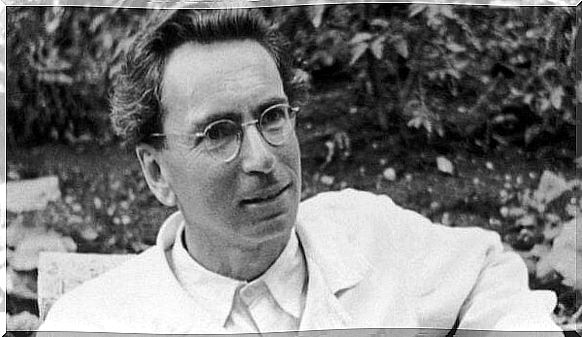
Thus was the greatest work of Viktor Frankl born: Man’s Search for Meaning . This book has been translated into almost every language. Many consider it a masterpiece of testimony and psychology. The most moving thing about the book is that Frankl does not want to tell the atrocities. His goal was to send a moving message to the world. He said: “I just wanted to tell the reader, through a concrete example, that life has meaning and potential in all conditions, even in the most miserable.”
Logotherapy, a legacy of humanity
Viktor Frankl was able to restore his life. He remarried in 1947, had a daughter, two grandchildren and a great-grandchild. His marriage lasted 50 good years. He received over 40 honorary doctorates, published more than 30 books, and taught at some of the most prestigious universities in the world. These include Harvard, Stanford and Vienna. He died in 1997, just after making his first flight as an amateur pilot.
Frankl’s psychological school is called logotherapy, and many psychiatrists use his methods today. His theories say that humans have 3 dimensions: the somatic or physical, the mental and the spiritual. From his perspective, psychological problems stem from a lack of strength in the spiritual dimension and / or in the definition of the meaning of life. For speech therapists, ” will to meaning ” is what allows us to continue living.

How do we find meaning? According to Frankl and his followers, there are 3 paths we can take: creation, transcendental affective experience, and attitude toward suffering. The first corresponds to the values of creation and creativity. It has to do with the ability to create art, write, etc. The other is based on the value of experience, interpersonal interactions and experiences. The third refers to the importance of attitude and assumes the capacity to overcome suffering.
The message Viktor Frankl wants to convey to others is that mental disorders do not originate from suffering, but in the meaning that is given to that disorder. His life was undoubtedly an example of the human ability to rise above all conditions.

